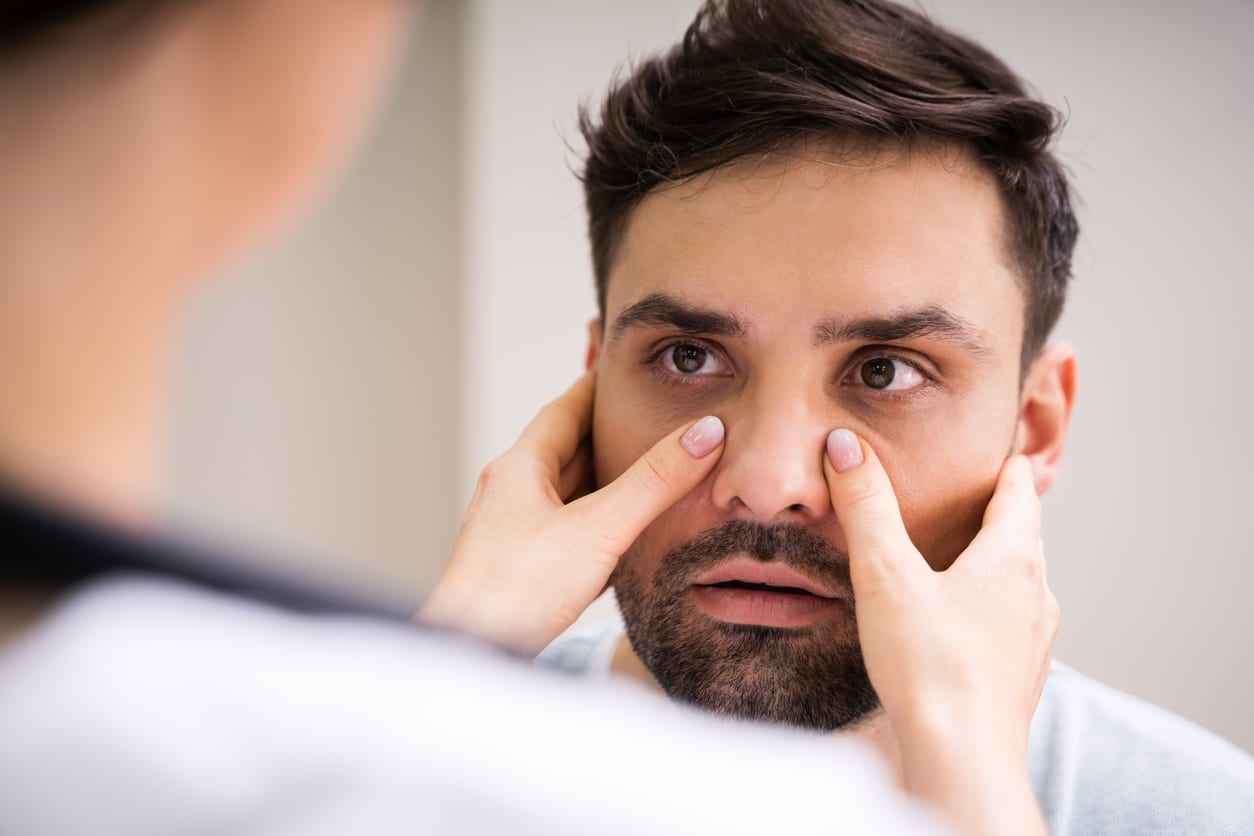Sinusitis, commonly known as a sinus infection, can bring a collection of uncomfortable symptoms, one of which is tooth pain. You may be curious how a sinus infection could cause tooth pain. Understanding the link between sinusitis and tooth pain, recognizing the symptoms and knowing when to see a doctor can help you manage this symptom more effectively if it happens to you.
The Connection Between Sinusitis and Tooth Pain

Sinusitis occurs when the sinuses, cavities in the face connected to the nasal cavity, become inflamed and swollen. This can be due to infections from viruses, bacteria, fungi or even due to allergies. The largest sinuses are above the upper jaw located just above the upper teeth and are particularly prone to causing tooth pain when inflamed, because roots of the upper teeth can reach into the sinuses.
When these sinuses swell, they can put pressure on the roots of the upper teeth, leading to a dull, aching pain that can be mistaken for a dental issue. This type of pain usually affects multiple teeth and can feel like a deep pressure rather than a sharp pain associated with typical tooth problems.
Symptoms of Sinusitis Tooth Pain
Distinguishing between sinusitis-related tooth pain and regular dental pain can be tricky, but there are some telltale signs:
- Location of pain: Sinusitis tooth pain often affects the upper back teeth and can be felt on both sides of the face.
- Accompanying symptoms: If your tooth pain is accompanied by symptoms such as nasal congestion, facial pressure, headache, post-nasal drip and a reduced sense of smell, it’s likely related to sinusitis.
- Pain fluctuation: Sinusitis tooth pain may worsen when you move your head quickly, bend over or lie down. These movements can increase the pressure in the sinuses, thereby increasing the pain.
- Duration and onset: If the tooth pain coincides with the onset of sinus symptoms or follows a cold or upper respiratory infection, it’s more likely to be sinus-related.
When to See a Doctor
While sinusitis tooth pain often resolves on its own, there are times when seeing a doctor is necessary. You should seek medical advice if you experience:
- Persistent symptoms: If your symptoms last more than several days without improvement, you should see a doctor.
- Severe pain: Intense pain that doesn’t respond to over-the-counter pain relievers or disrupts your daily activities warrants a visit to a healthcare professional.
- Fever: A high fever accompanying sinusitis symptoms can be a sign of a more serious infection.
- Dental concerns: If you’re unsure whether the pain is from sinusitis or a dental issue, a dentist can help rule out tooth decay or other dental problems.
Managing Sinusitis Tooth Pain
To manage sinusitis tooth pain, try the following home remedies and treatments:
- Stay hydrated: Drinking plenty of fluids can help thin mucus and promote drainage.
- Saline nasal spray: Using a saline nasal spray can help keep nasal passages moist and reduce congestion.
- Over-the-counter medications: Decongestants, antihistamines and pain relievers can help alleviate symptoms.
Sinusitis tooth pain can be a perplexing and uncomfortable symptom, but understanding its causes and knowing when to seek medical help can make it more manageable. If you suspect your tooth pain is related to sinusitis, contact your doctor. To learn more about persistent sinusitis, schedule a consultation with Blue Ridge ENT today.